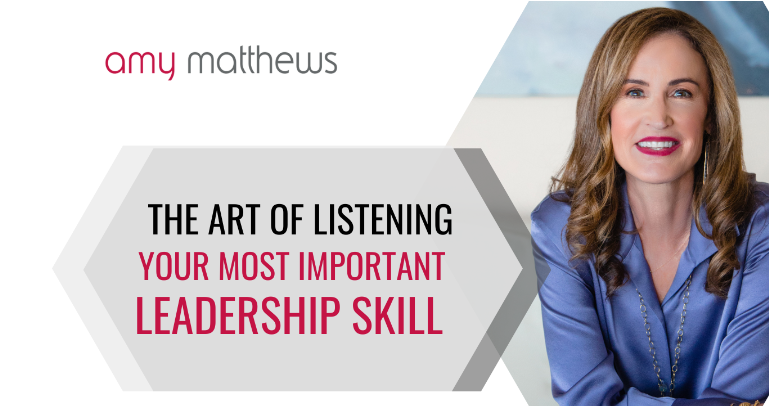We hear it all the time. “You’re not listening to me.” “They totally missed my point.” “He/she talked over me.” Our desire to be heard and understood is a basic universal need. When we feel listened to, we feel connected, and closer to the person and it contributes to our well-being. When we don’t feel listened to, we get frustrated, and angry and dig our heels into our point of view. Not feeling listened to begets not listening.
Social media, email, texting and Slack make teams more efficient for sure but the downside is we have fewer conversations. I’m a huge fan of Slack but it’s not a one-hit wonder. There is much room for misinterpretation, and nuances are missed which can lead to confusion and not being on the same page.
Add the fact that the attention span of humans is less than a guppy, the art of listening has gone by the wayside. But here’s the thing: we think we need to listen so the other person feels acknowledged. The truth is, that listening is good for the listener. It increases empathy and keeps us cognitively engaged and focused. It’s even proven that the less you talk, the more you enjoy the conversation!
I help my coaching clients with all kinds of communication. Prepping for board meetings, interviews, team kick-off meetings, how to ask for the promotion, how to let someone go. What to say and how to say it, with clarity, connection and conviction. Listening is as important or more important than perfecting your message and what you want to say.
Why Listening Matters
- According to a McKinsey study, teams that prioritize communication and actively listen are 50% more likely to have high productivity levels. As leaders, our ability to listen directly impacts the bottom line.
- The International Journal of Listening highlights that effective listening reduces the potential of conflicts escalating. Teams where leaders actively listen experience 40% fewer conflicts.
Here are 6 Tips to Sharpen Your Listening Skills:
- Be present which means remove all distractions. Turn off your devices. Being fully present shows respect and creates a deeper connection.
- Get out of your head. Most people are thinking about what they want to say next vs. truly listening. Put yourself aside and focus on the other person.
- Ask open-ended questions. The name of the game is “Be Curious”! Asking open-ended questions gives people permission to tell you what they really think.
- Keep it simple and brief. Don’t get into the weeds or go off on a tangent. Clear and concise communication fosters better understanding and connection.
- Do your best not to interrupt.I know how it feels when you get excited and dying to make your point! Take a few breaths or count to three before responding.
- Remove judgment and bias. Be open to a different point of view, you’ll learn something! Judgment and criticism are linked and no one wants that 🙂
Will the noise and constant change around us, being a leader who is grounded and intently listens will set you apart. Listening is not just hearing what another person says. Listening is the ability to understand what others are saying and having them trust you. Cultivating your listening skills will create a more engaged team and. provide you with more fulfillment in your leadership journey.
To be a good leader, you have to be a great listener.
-Richard Branson


